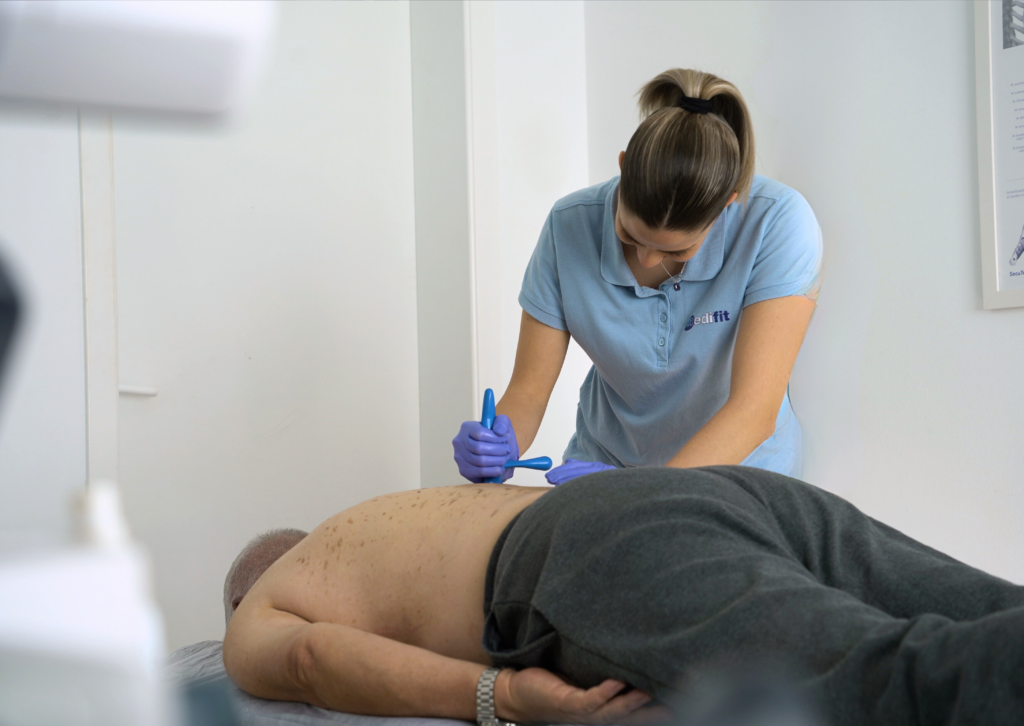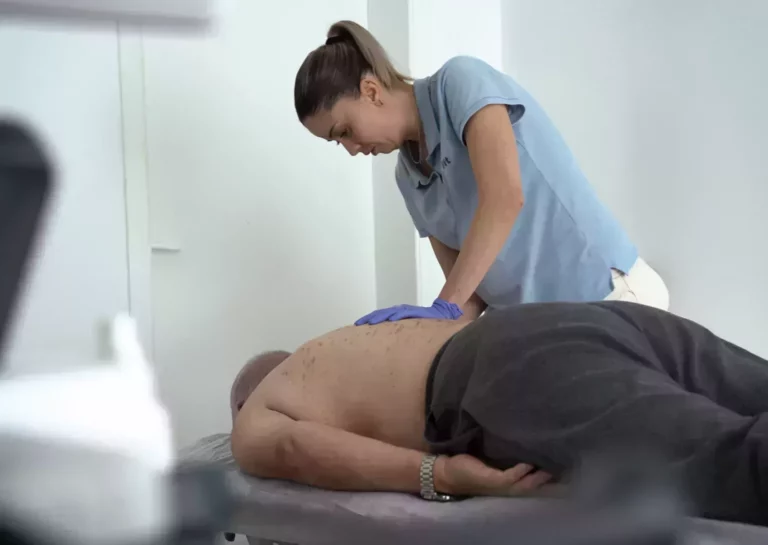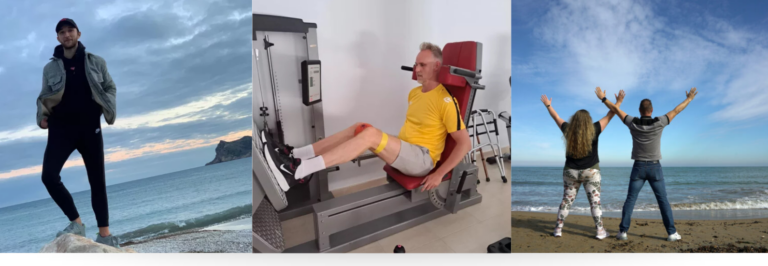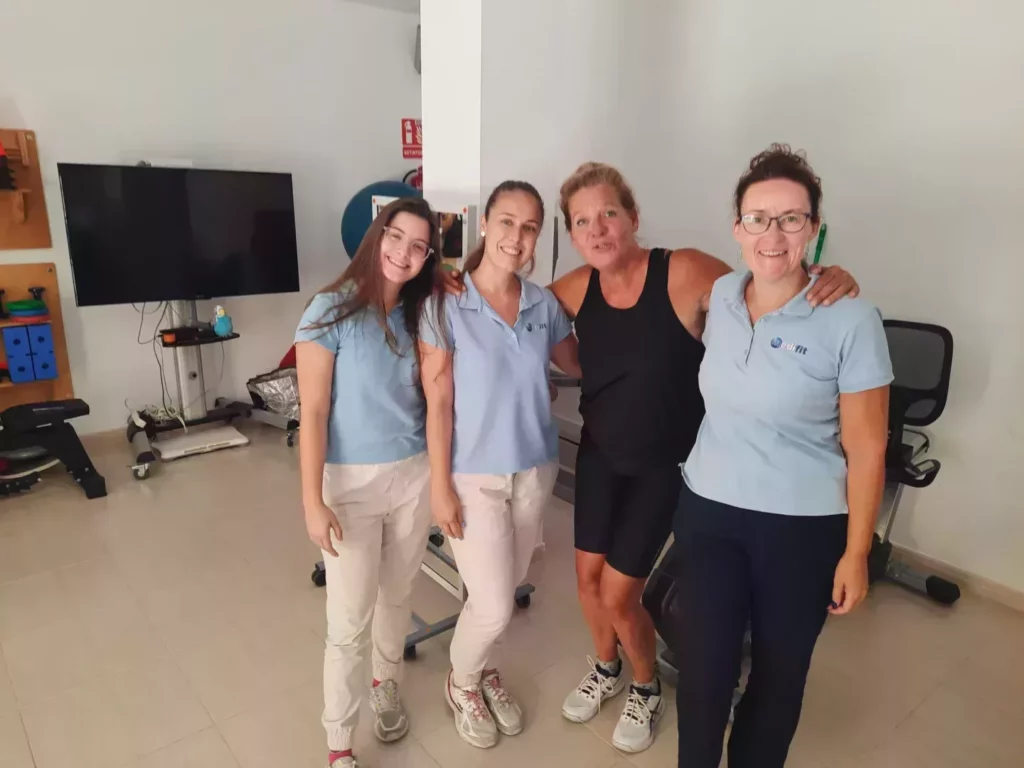
What is fatigue in MS and why does it affect quality of life so much?
Fatigue in multiple sclerosis (MS) is one of the most common and limiting symptoms. It is a physical and mental exhaustion that does not improve with rest and profoundly affects quality of life. This fatigue can make daily activities such as walking, working or social interaction exhausting. Often it is an invisible symptom, making it difficult for others to understand the impact.
Yet there are effective strategies for dealing with it. One of the most powerful is customized therapeutic exercise. Here are five useful exercises that can help reduce fatigue and improve overall well-being.

1. Quiet walks with pace control
Walking is an accessible form of aerobic exercise that can increase endurance without overexertion. It is recommended to walk in short intervals (e.g., 10 minutes) several times a day, preferably during cooler hours. The goal is not distance, but regularity. Outdoor walking also offers mental benefits by reducing stress and improving mood.
Benefits: Improves blood circulation, stimulates metabolism, promotes endorphin release and promotes better sleep.
2. Low-impact strength training
Strengthening muscles improves movement efficiency, meaning less energy is needed for daily tasks. This can lead to a noticeable reduction in fatigue. You can use resistance bands, water bottles or your own body weight. The focus should be on the quality of movement, not the amount.
Examples: Assisted squats, seated arm lifts or isometric contractions.
Frequency: 2-3 times a week, in sessions of 15-30 minutes.
3. Diaphragmatic breathing
Conscious breathing improves oxygen supply and reduces built-up tension. Diaphragmatic breathing (filling the lungs from the abdomen rather than the chest) is especially useful for relaxation and increasing available energy.
Recommended practice: Inhale through the nose for four seconds, hold the breath for two seconds, and exhale through the mouth for six seconds. Repeat for five to 10 minutes.
4. Stretching and mobility exercises.
Gentle stretching exercises relieve muscle stiffness, which is common in people with MS. Spending a few minutes at the beginning and end of the day moving the neck, shoulders, spine and legs can significantly improve flexibility and reduce fatigue caused by body tension.
Tip: Integrate these movements into your daily routine, such as when getting up or before going to bed.
5. Body-mind techniques: mindfulness and relaxation
Stress and anxiety amplify fatigue. Practicing mindfulness or guided meditation helps manage emotions, improve concentration and relieve mental fatigue. There are free apps and resources available to get started.
Result: Increased mental clarity, better emotional regulation and a sense of calm, even without sleeping more.
Why is rehabilitation essential in MS?
Living with MS means dealing with a chronic neurological disorder that affects many bodily functions. Fatigue, balance problems, muscle weakness and cognitive impairment are common symptoms. In this context, rehabilitation is not an option, but a necessity.
A good rehabilitation program allows you to:
- Adapting your body to new physical challenges
- Learn techniques to save energy
- Prevent complications such as contractures or falls
- Staying independent as long as possible
- Improve self-confidence and emotional well-being
An integrated rehabilitation plan addresses both physical and mental aspects and is carried out by a multidisciplinary team of physical therapists, psychologists, occupational therapists, speech therapists and rehabilitation physicians.

Medifit Reha: The ideal choice for MS rehabilitation
At Medifit Reha, we deeply understand the challenges of living with multiple sclerosis. That’s why we’ve developed an intensive, personalized, science-based rehabilitation program for people seeking real results.
Holistic approach
Our multidisciplinary team works with you to create a personalized plan that includes physical therapy, hydrotherapy, cognitive neurorehabilitation and clinical psychology. This combination of therapies addresses different aspects of your situation and provides more lasting improvements.
Adjusted intensity
Most patients receive 3 to 4 hours of therapy a day, five days a week. This well-dosed and supervised intensity leads to visible progress within a few weeks – something difficult to achieve in a conventional outpatient setting.
Location and therapeutic environment
Our center is located on the Costa Blanca (Spain), a region known for its mild climate and peaceful atmosphere. Many patients choose us not only because of our therapies, but also because they know that the environment helps recovery. Opportunities for hiking, enjoying the sun and resting well between sessions accelerate the recovery process.
“My rehabilitation stay at Medifit Reha in Dénia was exactly what I needed. Living with MS is not only physical, but also emotional – and at Medifit I felt supported on both levels. I trained 3-4 hours a day, five days a week, always adapted to my abilities. I noticed real improvements: more strength, better balance and, most importantly, more confidence in my body. The hydrotherapy was essential, as was the cognitive therapy with VR. They taught me to accept my limits with peace of mind. The team knew exactly how to challenge me without exhausting me. It was a transformative experience.”
Liliana
MS´s Patient
Why choose Medifit for your MS rehabilitation?
- More than 20 years of experience in neurorehabilitation
- Advanced equipment and technology (such as VR for cognitive training)
- Hot water therapy for increased safety and mobility
- Nearby and accessible accommodation
- International recognition for medical excellence
Take the first step to recovery
Fatigue doesn’t have to define your life. At Medifit Reha, we help you regain energy, function and confidence. Our goal is that you can get back to doing what you love to do – with as much independence as possible.
Want to know more? Check out our MS rehabilitation program


